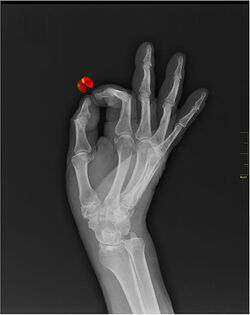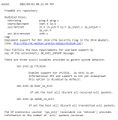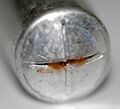Evil bit release: Difference between revisions
Jump to navigation
Jump to search

No edit summary |
No edit summary |
||
| (3 intermediate revisions by the same user not shown) | |||
| Line 3: | Line 3: | ||
== In the News == | == In the News == | ||
<gallery | <gallery> | ||
File:RFC 3514 IP EVIL INTENT.jpg|link=Evil bit (nonfiction)|April 1, 2003: Steve Bellovin publishes Request for Comment 5314, subsequently known as the [[Evil bit (nonfiction)|evil bit]] protocol, a humorous April Fool's Day proposal. | |||
File:Exploded electrolytic capacitor.jpg|link=Capacitor plague (nonfiction)|New study links [[Capacitor plague (nonfiction)|Capacitor plague]] with Evil bit release. | |||
File:Fugitive_Rubies_interrogation_800x600.jpg|link=Fugitive Rubies|Supervillain [[Fugitive Rubies]] involuntarily luminesces under green laser interrogation, re-emits red light. | |||
File:Cherenkov-radiation Advanced-Test-Reactor.jpg|link=High-energy literature|[[High-energy literature]] experiments may cause Evil bit release, according to reader survey. | |||
</gallery> | </gallery> | ||
Latest revision as of 17:15, 14 September 2018

This photograph, if genuine, may show the moment following the release of an Evil bit (nonfiction) by supervillain Fugitive Rubies.
An evil bit release, or evil bit release event, is the release of an Evil bit (nonfiction) from a computer network into another medium, such as biology (nonfiction) or literature (nonfiction).
In the News
April 1, 2003: Steve Bellovin publishes Request for Comment 5314, subsequently known as the evil bit protocol, a humorous April Fool's Day proposal.
New study links Capacitor plague with Evil bit release.
Supervillain Fugitive Rubies involuntarily luminesces under green laser interrogation, re-emits red light.
High-energy literature experiments may cause Evil bit release, according to reader survey.



